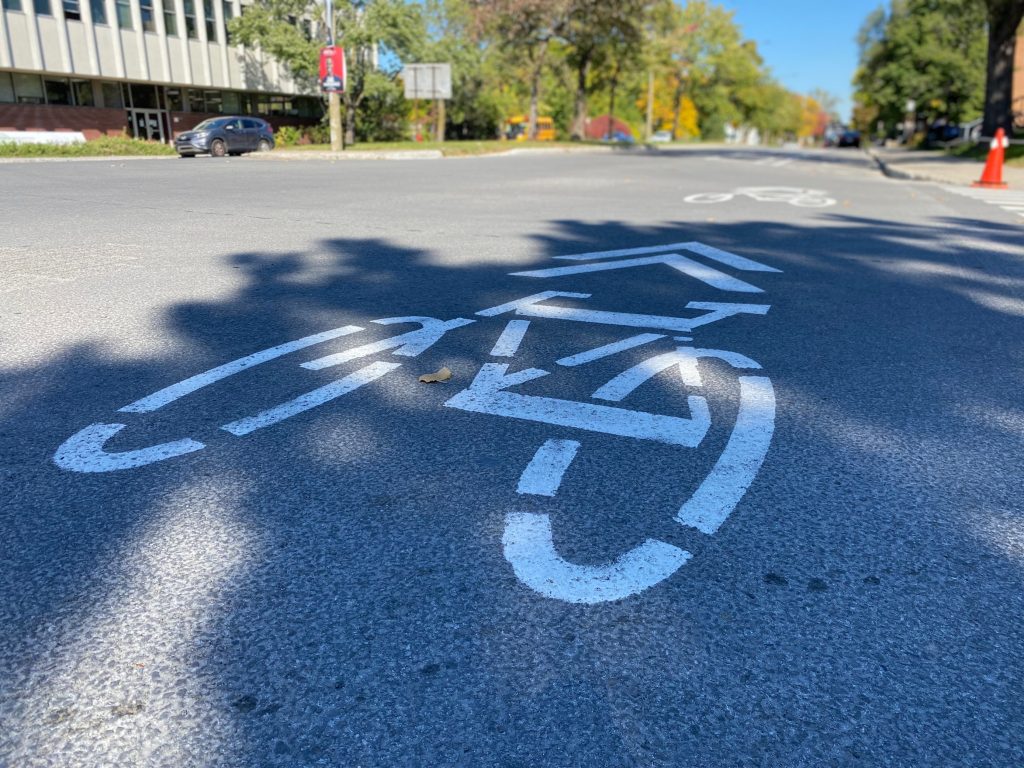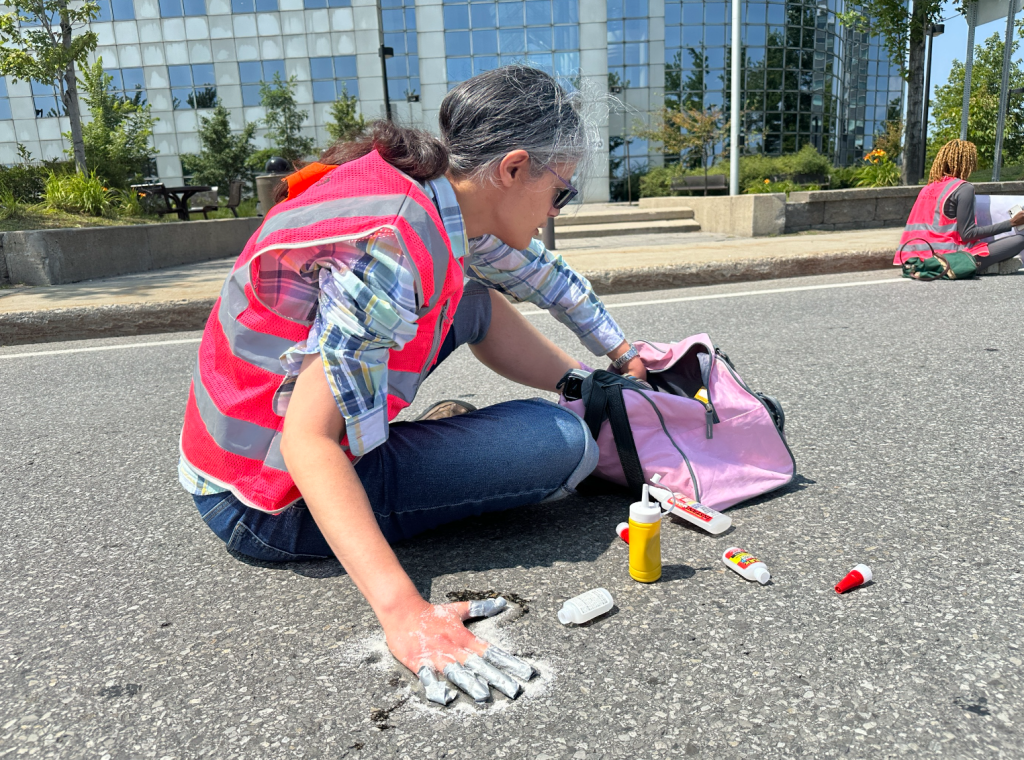Best-selling author Latoya Belfon shares book about diversity in accents
Posted February 28, 2024 3:38 pm.
Last Updated February 28, 2024 6:43 pm.
A children’s book from a Montreal author is teaching an important lesson.
“Izzy’s New Life” is one of the latest books by Montreal bestselling author Latoya Belfon. It’s an inspiring story that beautifully captures the essence of cultural pride, empathy and self-expression for young minds.
“It’s really a lack of knowledge why people sometimes judge or discriminate or bully others. So let’s take the opportunity to teach the world about how we sound and why we sound the way we do,” said Belfon.
“We say it often, don’t judge a book by its cover, and really let’s live by that.
“Judging someone based on their accent or how they speak, not knowing the history behind that, not knowing that this person is intelligent, this person is creative, this person has so much to offer the world and they’re not limited by just how they speak or a language that they speak. So it’s to really be open to the world, be open to diversity and be open to learning about other cultures as well.”
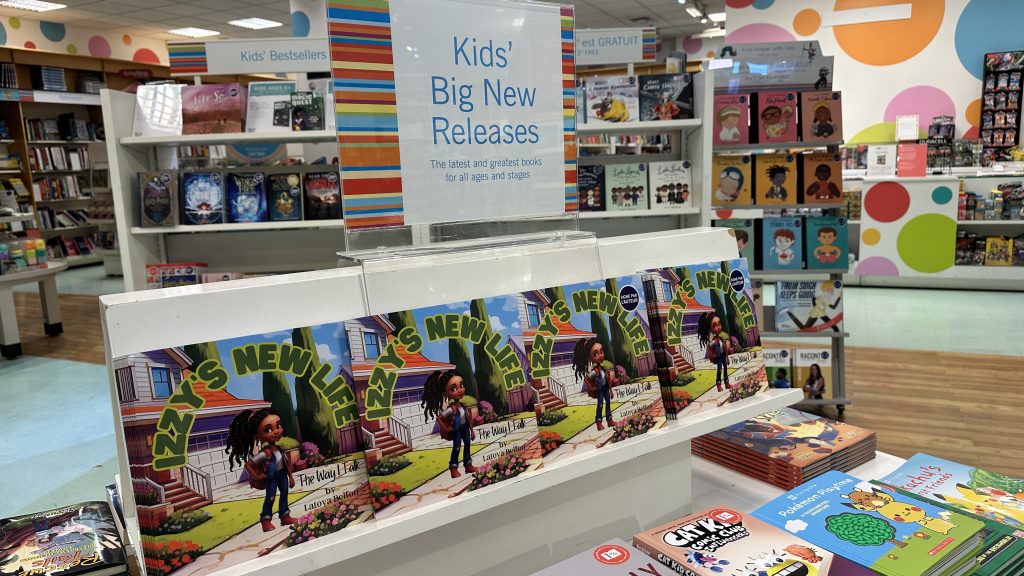
When Belfon first published her book, she had a lot of adults reach out to her, “because they instantly went right back to their high school, their elementary experience and feeling silenced, feeling like ‘my accent is just making it seem like I’m uneducated.’ And so I want everyone to be brave of their culture because you have to love your culture, love where you come from and that’s the message in the book.
“Izzy’s aunt says to her ‘be proud of your country, be proud of your heritage, be proud of all these things that make you.’ When people ask you ‘why don’t you sound like that?’ It’s an opportunity to tell them about your country, tell them about your culture,” said Belfon.
There are elements of Belfon’s own past and journey as an immigrant, but she says “honestly the last couple years teaching in an elementary school and having… all my class was about 30 students and they were all from different countries.
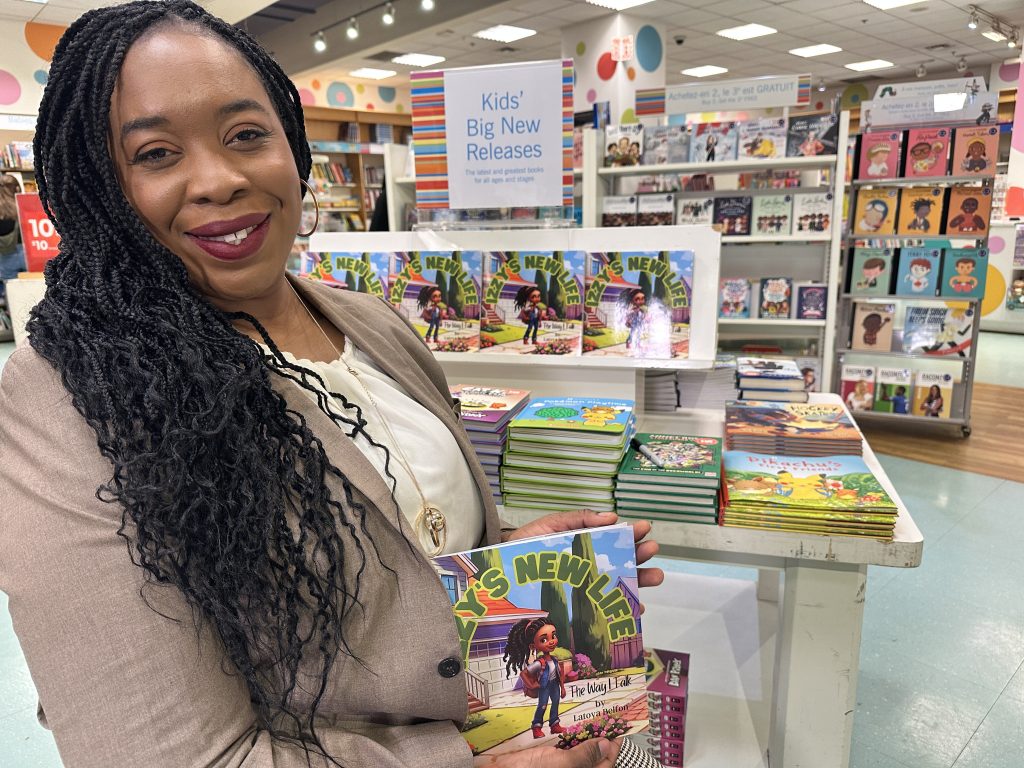
“They had all recently migrated to Canada and there was a couple of Black kids, Indian, Pakistani kids, there were kids from Lebanon, there were kids from China, Japan, like all different types of kids. And so as a teacher I had to really understand the complexity of all of these lives, these situations occurring and how to provide equitable education to them. And I realized that language barrier was one thing and culture was another thing.”
“They had so many challenges but I had to take what I’ve learned from that experience and sort of like channel my own. And so here (began) Izzy’s new life and talking about her accent — not that she couldn’t speak English or French — but her accent and how she spoke English was what limited her in a way and silenced her, which is something that a lot of people in my country and a lot of people from the Caribbean deal with.”
In the book, one child tells another that he has an accent because he is from Italy, so she responds that she has an accent because she is from Grenada.
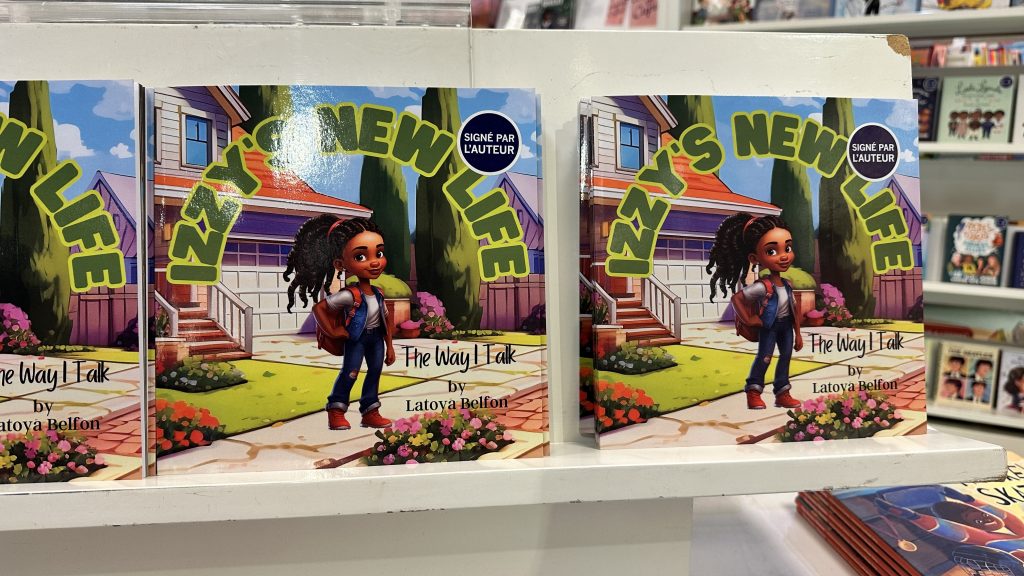
Izzy’s story is inspired by Latoya’s experience when she immigrated to Canada in 2001.
“When I came to Montreal, of course language barrier for sure was one cultural difference.
“I think what was really important was to have almost like a group of people who has done it, who has integrated into society.
“I found that the services that we have for immigrants at that time were not really, I would say, tailored for the Black experience.
“We’re all different, we all have different issues or different limitations when we come here so I think was maneuvering through those things.
“I had to do a lot of research on my own and find my own way by just asking questions because I wanted to know how can I integrate, how can I be a productive citizen, how can I live the Canadian dream.”
